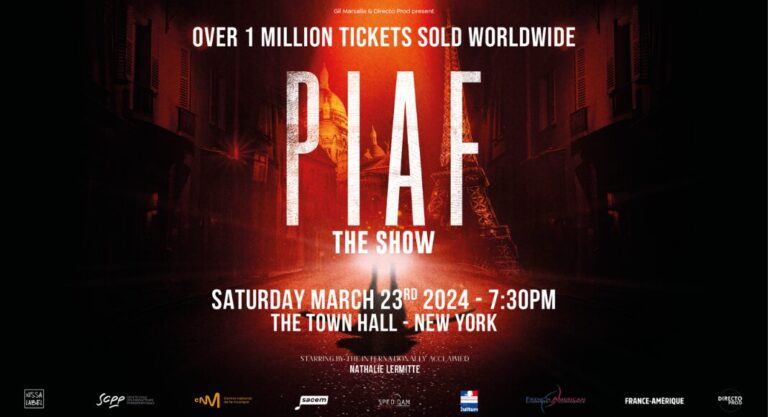Rock operas have always been one of the few socially-acceptable opportunities for masc musicians to queer their own art. (At least, before the pink spangled queer bait consumerism of Harry Styles.) They are, by definition, camp, as they must be approached with full-throated enthusiasm to have a chance at being any good. They can be beloved (A Night at the Opera). They can be disappointing (Tranquility Base Hotel & Casino). They can even be panned and later reclaimed (Danger Days: The True Lives of the Fabulous Killjoys).
But whatever they are, rock operas, pop operas, and concept albums remain a chance to push the boundaries of gender expression. So it makes sense that the new Christine and the Queens album follows this legacy. Titled Redcar les adorables étoiles (prologue) (“Redcar the Adorable Stars”), this avant-garde pop opera sees one of the top French pop artists today on a journey of self-exploration and yearning. Redcar is a new exploration of the genre while paying direct homage to it, in an over-the-top saga about gender transformation, lust, grief, faith, and finally, self-acceptance.
Born Héloïse Letissier, the French artist rose to fame as Christine and the Queens, a stage name referencing the London drag queens who inspired Letissier in the early days of the artist’s musical performances. Letissier now goes by Chris and recently adopted he/him pronouns, though he is still billed and credited as Christine and the Queens. “Chris” was once a persona the artist used to explore a more masculine side of himself in performance, while still identifying as a woman off stage, embodied in his 2018 album Chris. If the names are starting to confuse you, buckle in. Letissier/Christine/Chris is one of those artists who evolves with every new album, tracking a slow, conceptual transformation from femme to them to supernatural and, finally, genderless icon.
This evolution has been clearly documented as far back as Chris’s first album from 2014, Chaleur humaine. In the opening track, “iT,” Chris sings, “I’ve got it/I’m a man now/And there’s nothing you can do/To make me change my mind.” In his second album, Chris, he continues to write about transness in the pop track “Girlfriend,” where he affronts at the rude questioning of a passerby demanding to know his gender. “F-fuck is you?” asks the now CisHet Chris OK?. It’s both a diss track and a song about lust, with Chris then singing to his lover, “Don’t feel like a girlfriend/But lover/Damn, I’d be your lover.” In an interview about the track, he told The Guardian, “I’m playing around with the male gaze and confusing heterosexual dudes who say stuff [about how I look] like: ‘I’m excited… but I’m angry!’ I love the scam of a macho man.”
This is the charm and playfulness Chris brings to cultural commentary, and what gives his songs the vibrancy and humor that earned the Nantais singer Time Magazine‘s “Song of the Year” award in both 2018 and 2020. The first time was for “Girlfriend,” and the second time was for “People, I’ve Been Sad” off the EP La Vita Nuova, which became the relatable pandemic anthem we needed.WHY?
The artist has often been classified as synthpop, art pop, or electropop, mixing eclectic 80s dance beats with deliberately coded lyrics. He sings in both French and English, sometimes mixing both on the same track, or re-recording French tracks in English. He’s even featured on songs by Charlie XCX alongside Caroline Polachek, two other big name gay pop icons. Chris describes his own work as “freakpop,” a clarion call for others exploring their own sexuality and forms of expression. But despite constructing a totemic oeuvre rooted in queerness, Chris has refused offers to appear in LGBTQ-targeted advertising campaigns or use his sexual identity to turn a profit, rejecting a public, commercialized queer identity.
This partly explains why it took so long for the artist to come out as a trans man, instead dodging compartmentalization over the course of ten years and several personas. Famously once a self-conscious and bookish child, Chris has guarded his identity with a tight fist, prioritizing self-exploration and personal expression over easy categorization.
But now, Chris has adopted a new, bolder persona, that of Redcar, a suave alter-ego reminiscent of Serge Gainsbourg. The name is a reference to a superstition the artist developed after the death of his mother, that passing red cars were a sign of good luck. It can perhaps be interpreted as a choice to see magic in the everyday, to allow hope to spark the most meagre of tinder. “Redcar is my current artist name, and like my many other names before, it bears a whole belief system; a particular poetry that unfolds to me as I understand it more by living it,” explained Chris/Redcar in a recent interview with Vogue.
In the first music video of the new album, “la chanson du chevalier,” Chris is dunked in glitter and dressed in a white sailor outfit, prancing around a statue of Rodin while flexing his muscles in a macho display that manages to be both comical and sexy. It’s a trancelike song about lust mixed with sacred fairytale imagery, cheeky and irreverent and sincere.
In an earlier live debut of “Je te vois enfin,” Chris pours forth a passionate prayer in a three-piece suit, commenting to god that, “It is impossible in your books not to sin.” It’s possibly the best song on the album, barreling onto the scene right after the funky “Combien de temps,” which jams on for nearly nine minutes in a nod to the psychedelic music of our collective cool dad consciousness. (The bluntly referential nature of the tune recalls the 70s drag of St. Vincent’s Daddy’s Home.)
Redcar is hypnotic and operatic, with a few of the upbeat pop hits one would expect from the artist who wrote “Girlfriend” and “Tilted.” But it has its soft spots, too. Language and emotion blur as Chris croons of bodies both celestial and sensual, roads taken and untaken, childhood lullabies and white knights. But beneath all the pageantry is the tenderness of someone just now beginning to figure out who they are, and what they might be capable of.
—
Catherine Rickman is a writer and professional francophile who has lived in Paris, New York, and Berlin. She is currently somewhere in Brooklyn with a fork in one hand and a pen in the other, and you can follow her adventures on Instagram @catrickman.






